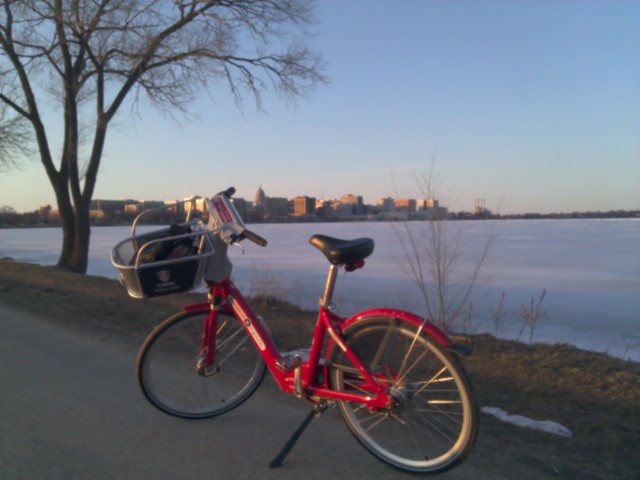Bixi, which runs the bike sharing system in Montreal and sells the bikes, stations and software to other cities, has filed for bankruptcy. The city has taken over the operation of the local network at an estimated $1.5 million cost. Like most bike share hosts, Montreal has thus far refused to contribute to operating costs. But if we consider the usage, about 2 million trips per year, I agree with the new mayor that $0.75 per trip is a great investment for a healthier, more accessible city. Let's hope support remains high among residents for continued operation.
Every city that has implemented a bike sharing system (as far as I know) has done it the same way: rely on a private company to run it, refuse to spend any public money on it, then complain about the over-reliance on advertising, station placement and failure to reach low-income and minority communities.
Perhaps it's a small issue: if you can make it run well without city funds, well, more money for schools and libraries. Except what happens when we use a federal grant for a new library building but then expect managers to solicit sponsors to help pay for books and computers? Same with bike sharing: at some point ad revenues decline and things fall apart. Like bus routes, many stations will be critically important but never profitable. But social equity and environmental justice goals don't easily mesh with running a business.
If we are serious about encouraging bicycling as healthy and effective transportation, cities should start funding and operating bike share as a public service, integrated with other modes of transportation. The Montreal mayor's comments are encouraging, as Bixi certainly is a fantastic public service worth paying for, and Montreal's transit agency STM has put together a plan for running it. After all, bike sharing only supplements the trains and buses that form a comprehensive, useful transportation network for maximum mobility.





